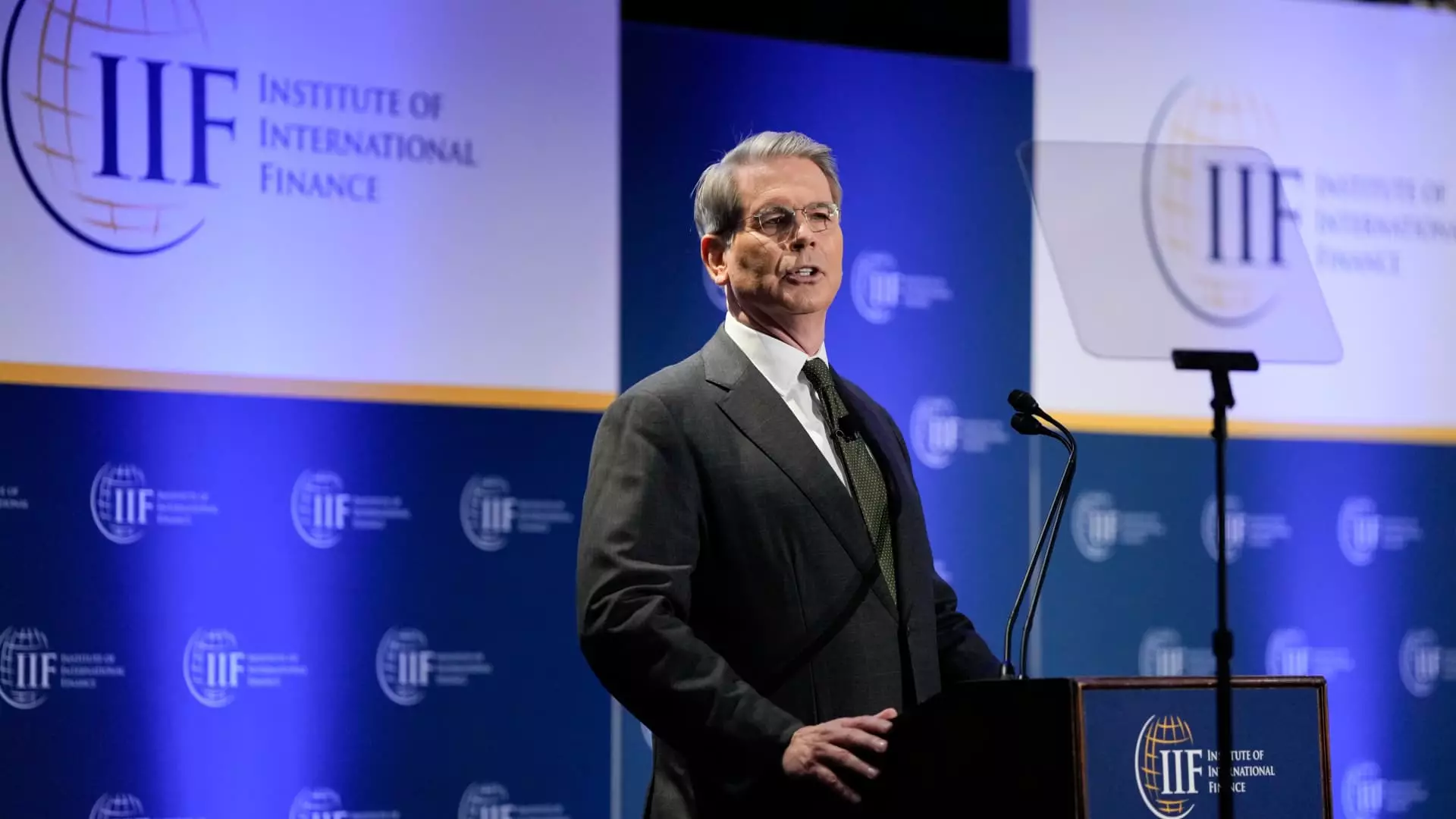In the ever-turbulent waters of international commerce, the call for a new trade arrangement between the United States and China has emerged as more than just a background noise—it is a clarion call for significant reform. Treasury Secretary Scott Bessent recently highlighted this pivotal moment as an unprecedented chance to reshape our trade relationship. The notion of a “big deal” is enticing, yet it requires nuance beyond mere discussions; it demands concrete actions that reflect mutual benefit rather than unilateral concessions.
As we navigate through a landscape riddled with tariffs and looming economic threats, Bessent’s invitation for collaborative rebalancing presents a timely opportunity. The protectionist measures imposed by the Trump administration, culminating in a staggering 145% tariff on Chinese goods, are nothing short of economic warfare. The administration’s contemplation of reducing these tariffs to a still-hefty 50%-65% only deepens the imperative for a reevaluation of not just what we want but also how we intend to achieve it.
Economic Warfare: The Costs of Retaliation
Allowing protectionism to dictate trade policy has inevitable repercussions. While proponents argue that tariffs are a necessary tool to defend American jobs and industry, they do little to create sustainable economic growth. Instead, they instigate retaliatory measures that disrupt established supply chains, raising costs for consumers and businesses alike. The result is a cycle of escalating tension that stalls progress and threatens global economic stability. Bessent accurately framed this discourse as such: “This status quo of large and persistent imbalances is not sustainable,” and yet the failure to see the dire consequences of ongoing hostility underlines a collective myopia.
Ray Dalio, renowned investor and founder of Bridgewater Associates, expressed concerns that echo a broader apprehension within the financial community. He warns that the current trajectory threatens to descend into a turmoil far worse than a recession. The reality is that as long as the U.S. persists in these tariff tactics, it undermines its own economic standing and larger geopolitical aims. Instead of collaboration, we are reinforcing walls, leading to a precarious stalemate with no winners.
Reforming the Institutions That Govern Trade
Bessent wisely points out that the mechanisms designed to support global economic stability—the World Bank and the International Monetary Fund—require a radical reexamination. These institutions, established in the aftermath of World War II, have become more entangled in mission creep than in fulfilling their foundational goals. Central to Bessent’s argument is the controversial stance that the World Bank should halt lending to nations like China, which do not fit the traditional categorization of “developing” economies.
To treat China as a developing nation is to disregard the elephant in the room—it is the second-largest economy in the world. The continued financial support not only hampers the growth of legitimate emerging markets but also fosters a culture of dependency that stifles innovation and private sector growth. It’s a move that many may view as counterproductive to the overarching goal of enhancing global economic fairness.
In the wake of these discussions, one cannot help but ask: can we afford to ignore the ambitious global agenda that calls for more than mere financial transactions? The world is in desperate need of a regime that prioritizes equitable growth while uniting nations through collaborative prosperity.
The Road Ahead: A Change in Mindset
At the heart of this conversation lies a transformational category of thought—modeled less on confrontation and more on collaboration. For the United States to reclaim its influence, we must embrace a mindset that is both progressive and engaged. Ongoing economic isolationism can only lead to increased divides and missed opportunities.
Instead, we must align ourselves with policies that reflect the interconnected fabric of the global economy while not compromising our core values. The future of U.S.-China relations—and indeed, the global economic landscape—is contingent on innovative approaches that transcend the outdated frameworks we’ve relied upon. Secretary Bessent’s vision for an organized rebalancing could lay the groundwork for a future where mutual respect and shared goals prevail over economic warfare and hostile posturing. In this critical juncture, the choices made today will dictate not only the trajectory of our economies but also the legacy we leave for generations to come.

